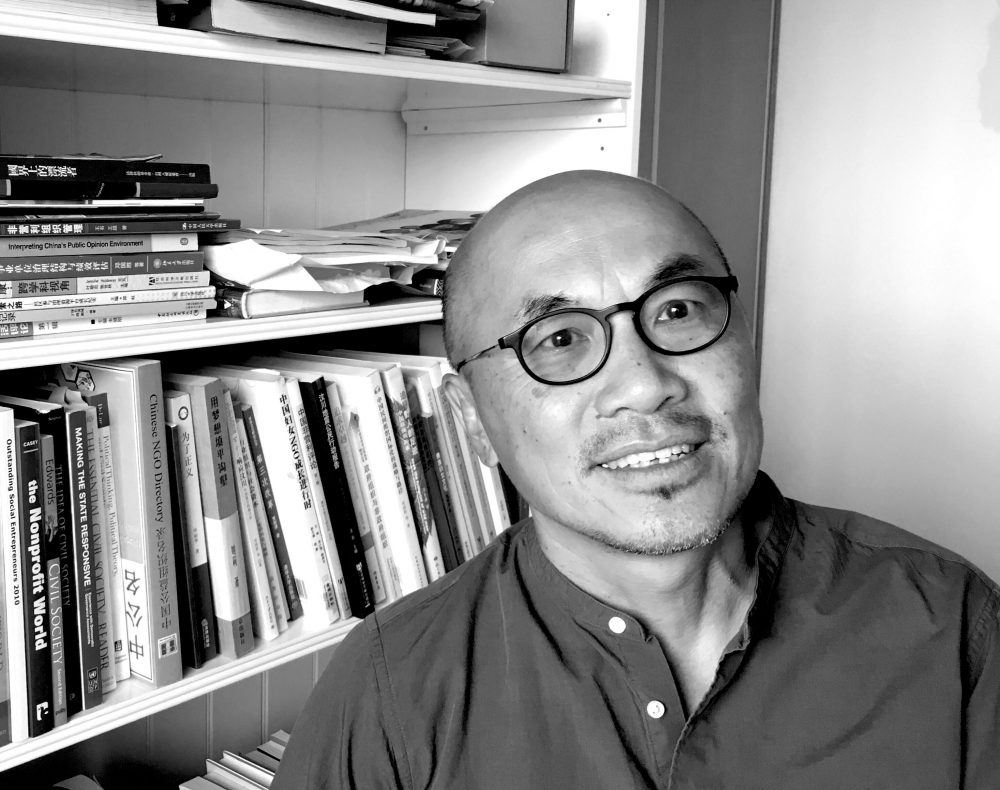Workers play a critical role in combatting the COVID-19 pandemic in China and around the world. And the world now depends on Chinese workers to make a great deal of the personal protective equipment (PPE) we need.
There is perhaps no better example of this dependence on workers than the Huoshenshan (Fire God Mountain) Hospital in Wuhan, the city where the first cases of COVID-19 emerged in December 2019. Huoshenshan is a 1000-bed hospital built in late January 2020 specifically to isolate and treat COVID-19 patients. It was constructed in a mere 10 days by a crew of around 7000 women and men working around the clock in two 12-hour shifts.
Unlike open societies with access to reports of workers on the frontlines, China’s heavy censorship — and fierce repression of labor activists and organizations — has made it difficult for worker news to get out. Thanks to monitoring by organizations such as the China–Europe Association for Civil Rights and the China Labour Bulletin, we have some idea of the struggles of workers and their families during the pandemic.
Unfortunately, the story is not a happy one for workers abandoned by China’s only union, the All-China Federation of Trade Unions (ACFTU), a party-controlled organization set up to represent workers but functioning more like an arm of the state. In the void left by the ACFTU, organizing by workers themselves and by civil society groups have become the last bastions of defense for workers and their families.
First, workers themselves have been organizing to call attention to unpaid wages and inadequate PPE and working conditions. In early February, workers in places such as the Huoshenshan Hospital construction site reported that they were not getting paid, not getting adequate PPE, and not getting drinking water. Many were migrant workers, unable to return to their hometowns for the Chinese New Year holiday, who had joined the effort to build the hospital to help in the war against the pandemic. Even healthcare workers in some hospitals have posted online demands for payment of promised government subsidies.
In March and April, thousands of taxi drivers in several provinces staged protests demanding a reduction in their vehicle rental fees or the right to return their vehicle without penalty due to the pandemic. A number had already been struggling financially before the pandemic, when they had to stop working. While some organizers were fired, many successfully forced concessions from their employers and local governments, who introduced measures to ease the burden via reduced rents or additional subsidies.
Second, civil society groups — mutual-aid teams, worker organizations, and volunteers — have been offering assistance and advocating for workers’ rights. Several self-organized mutual-aid teams, composed of students and social workers, in a dozen cities came together to fundraise for PPE for sanitation workers, and to draw public attention to their contributions. One Guangzhou group — Huishan’ai — has been collecting tablets and laptops for the children of sanitation workers.
Such groups have called attention to the “digital divide” facing millions of children of rural migrant workers. Their classes were transferred online, yet they lack the necessary electronic devices or Internet connections enjoyed by students in urban areas. One middle-school student in Henan attempted suicide by taking her mother’s prescription medication when she was unable to continue her studies online. She lives in a low-income household where both parents have serious disabilities and only one mobile phone, shared with another sister.
The few worker organizations that have not been suppressed are also assisting workers. Hongyan’s House, working with domestic workers, has started a hotline for counseling and information about epidemic prevention. Others, such as Shenzhen’s Weide Legal Services Center and Lexing, focusing on worker safety, have opened legal aid hotlines for workers seeking information about their labor and employment rights during the pandemic. CSOs like Facilitators in Beijing, and Yanli and Green Rose in Shenzhen, have been collecting PPE and hand sanitizer for community workers. They have also called for reduced rents for migrant workers during the pandemic.
As workplaces begin to bring workers back, reports have emerged about employers opening up too soon or not providing workers with adequate PPE. In one case, a state-owned factory in Fujian required its employees to show up before the official re-opening date. Workers posted online complaints to the local government, saying they would refuse to show up for work. In another case, student interns in Shenzhen were told to show up for work even though they were still owed wages. When they complained to the local government, the factory was ordered to stop operations.
These stories from the frontlines give us only a glimpse into the pressures that workers in China face during the pandemic. They remind us of the critical contributions of Chinese workers, and of the civil society groups that brave a repressive political environment to assist and advocate for them.
Photo by Yannes Kiefer on Unsplash
